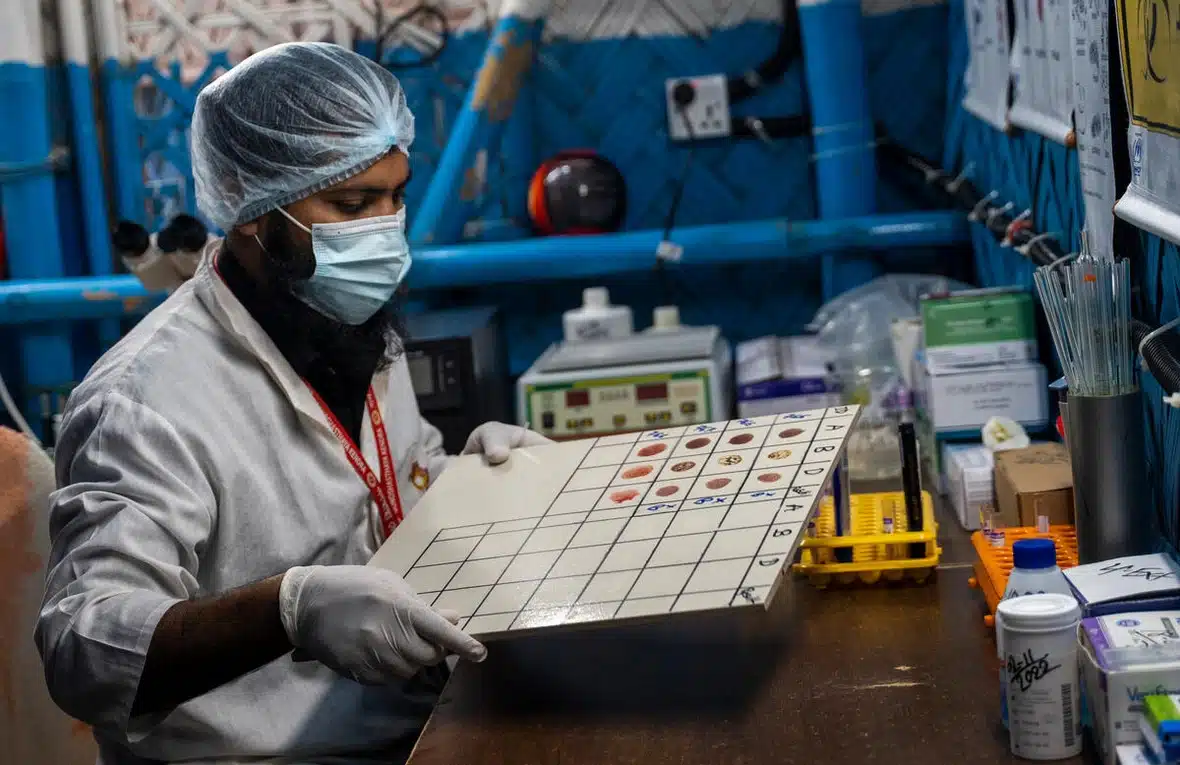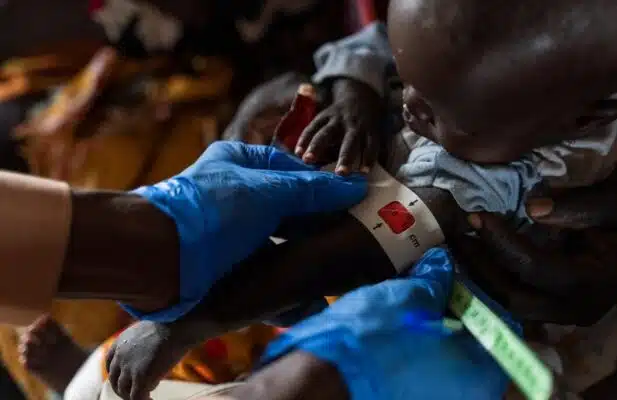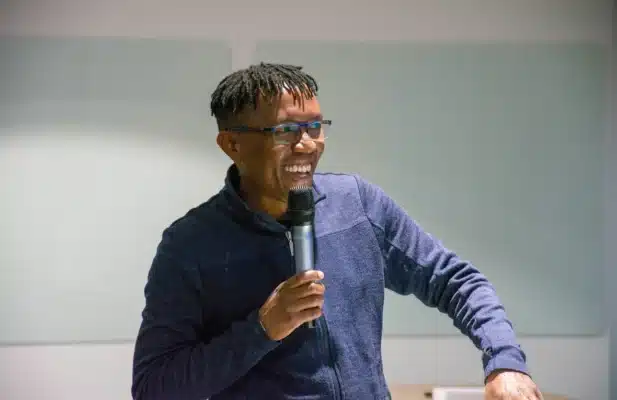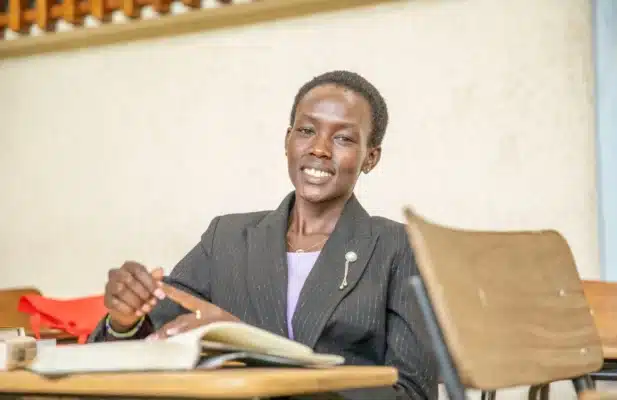
Lab technologist Mohammed Elahi tests blood samples at a health care centre in Kutupalong refugee camp, Cox’s Bazar, Bangladesh. © UNHCR/Saikat Mojumder
Sony contributes $6 million to support COVID-19 recovery efforts and disease prevention in Bangladesh and the southern Africa region
TOKYO – UNHCR, the UN Refugee Agency, today welcomed a new partnership commitment from Sony Group Corporation (Sony) – through Japan for UNHCR – that will provide $6 million to strengthen access to health care and water and sanitation for forcibly displaced people and their host communities, helping them to recover from the impacts of COVID-19 and better prepare for future health shocks.
Over three years on from the onset of the COVID-19 pandemic, refugees continue to experience some of the direst consequences of the crisis. Refugees and other forcibly displaced people are among the most vulnerable to infectious and water-borne diseases and poor health and nutrition.
Sony is a long-term partner of Japan for UNHCR, having supported UNHCR in addressing the needs of forcibly displaced people since 2001. From the earliest stages of the COVID-19 pandemic, Sony stepped up to support UNHCR’s response efforts with a $3 million contribution in 2020.
With this new three-year commitment, Sony is contributing $6 million from its Global Relief Fund for COVID-19Link is external to help UNHCR improve refugees’ access to health care and clean and safe water, sanitation and hygiene (WASH) in Bangladesh and the southern Africa region. With this support from Sony, UNHCR can provide better health services, improve WASH infrastructure and delivery, and empower refugees with vital information on health and nutrition. This partnership will build community resilience, helping to better protect against future pandemics and their harmful impacts on at-risk communities.
“UNHCR is committed to working with private sector partners like Sony to ensure no displaced person is left behind in the ongoing recovery from COVID-19 or in better preparing for future health crises,” said Kelly T. Clements, UN Deputy High Commissioner for Refugees. “This important partnership means UNHCR can reach more forcibly displaced people with the essential health services and support they need.”
By leveraging Sony’s extensive expertise, world-class technology and business infrastructure, UNHCR will be able to improve access to quality health care and WASH and to bolster activities around hygiene and nutrition promotion, disease surveillance, early identification and health hazard response.
“Sony is proud to collaborate with UNHCR to provide support that can improve the health and futures of refugees and forcibly displaced people. Established in April 2020, the Sony Global Relief Fund for COVID-19 has supported those affected by the pandemic in the areas of ‘medical,’ ‘education’ and ‘creative communities’. Through the partnership with UNHCR, we will further support efforts to address social issues that have become more serious or apparent since the outbreak of COVID-19,” said Shiro Kambe, Senior Executive Vice President, Sony Group Corporation.
This commitment will strengthen efforts toward achieving Sustainable Development Goals 3 (Good Health and Well-being) and 6 (Clean Water and Sanitation) and is expected to benefit more than 1.8 million forcibly displaced people and host community members over the next three years.
About the Sony Group Corporation
Sony Group CorporationLink is external is a creative entertainment company with a solid foundation of technology. From Game & Network Services to Music, Pictures, Electronics Products & Solutions, Imaging & Sensing Solutions and Financial Services – Sony’s purpose is to fill the world with emotion through the power of creativity and technology.
About the Sony Global Relief Fund for COVID-19
In April 2020, the Sony Group Corporation established the Sony Global Relief Fund for COVID-19 – a USD$100 million fund to support people around the world affected by the virus. Through this fund, Sony Group Corporation provides assistance across areas of health, education and support to those who work in the arts and entertainment industries, whose livelihoods were destroyed by the crisis.
For more information, please contact:
- Jemma Galvin, Private Sector Communication Officer, Private Sector Partnerships Service, Asia: galvin@unhcr.org





